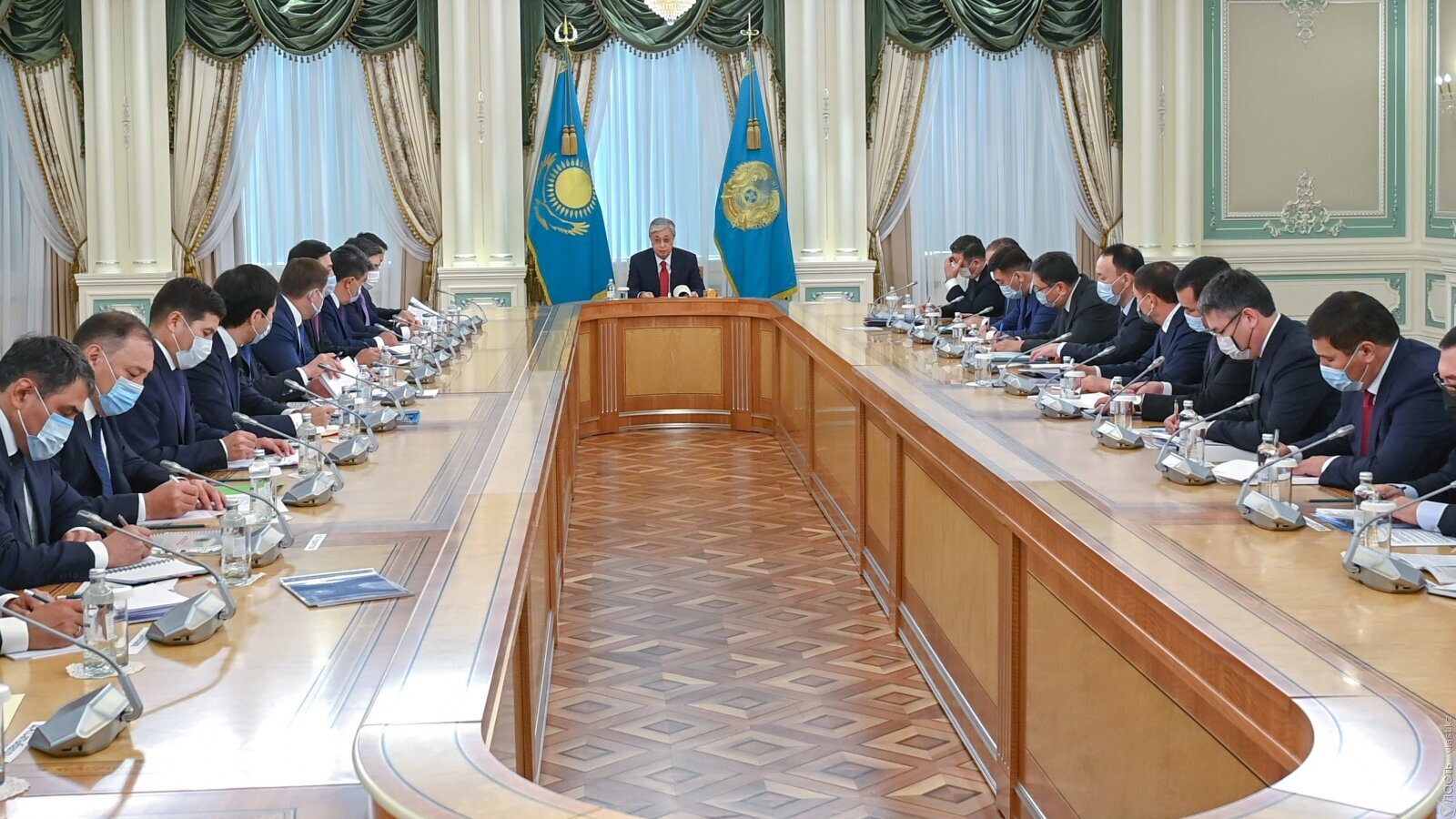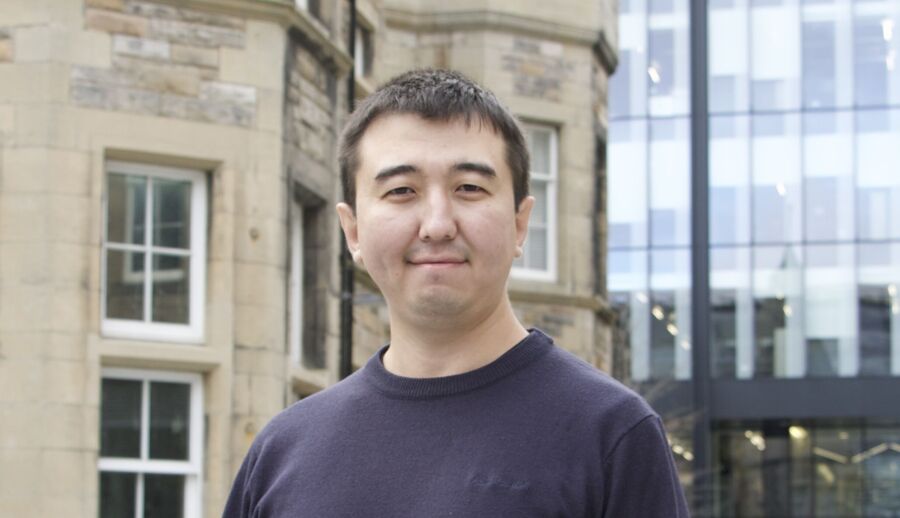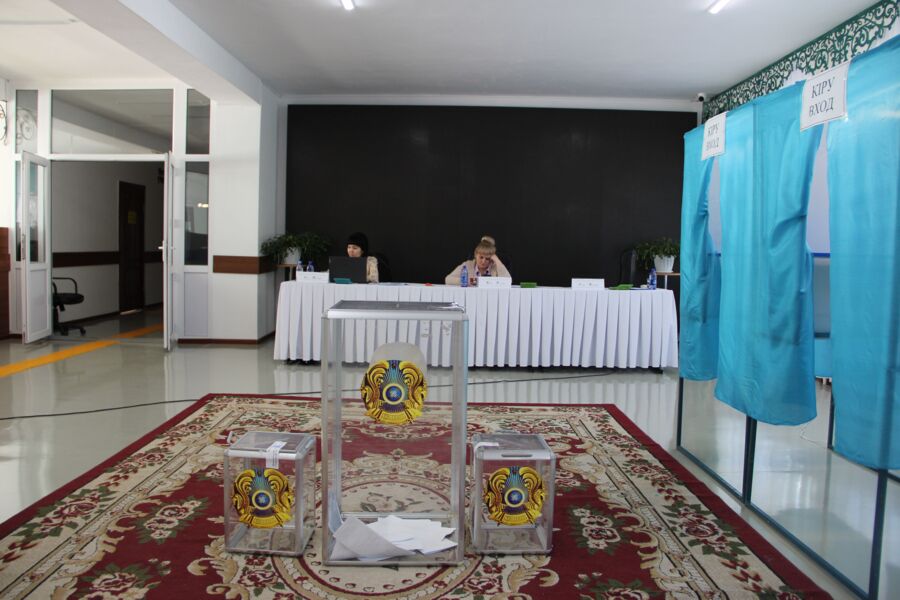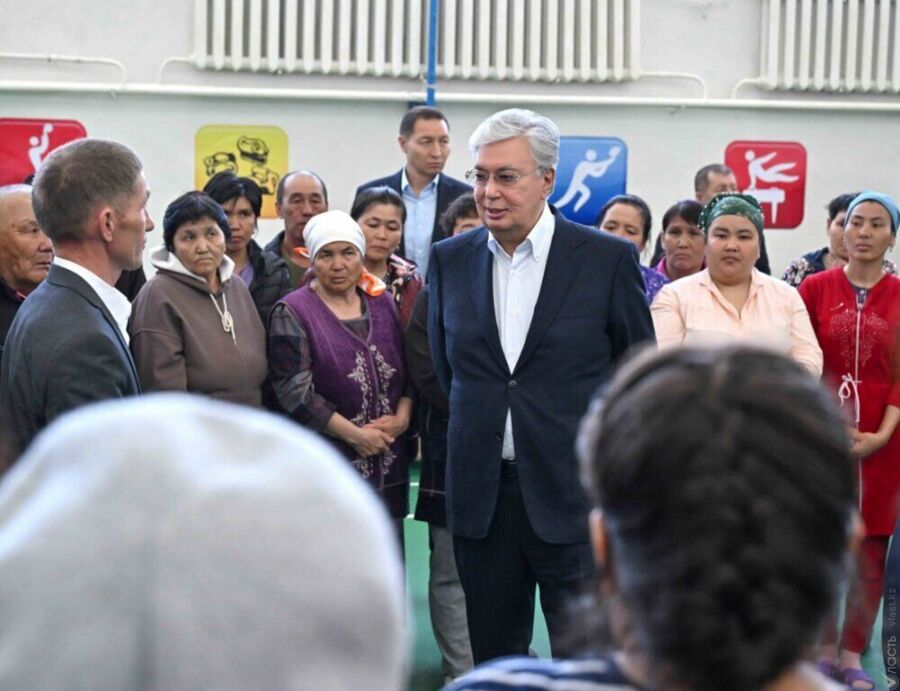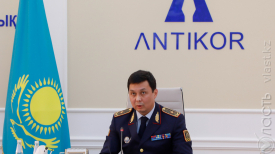Осы мақаланың қазақша нұсқасын оқыңыз.
Читайте этот материал на русском.
The brutal murder of 16-year-old Sherzat Polat last month sparked a discussion among residents of Talgar, not far from Almaty, on whether the town is run by informal powers. Locals argued across social media platforms that local authorities could be sponsoring the so-called ‘Khutorskie’, a criminal organization suspected of being involved in Polat’s murder. This alleged patronage could slow down the investigation, creating discontent among residents.
Political scientist, formerly at the University of Edinburgh, Ilyas Yesdauletov talked to Vlast about his research into how authoritarian regimes decentralize their power, using Kazakhstan as an example.
President Kassym-Jomart Tokayev has strengthened Kazakhstan’s super-presidential system. Yet, in the aftermath of the murder in Talgar, we talk about regional power groups, independent from the center. Isn’t this a paradox?
The central government cannot control everything in such a large country, but it can make sure that decisions are made in agreement with the center. However, the center cannot cope with this and the system gives rise to what I call ‘authoritarian decentralization’. Here, the center controls everything, but the regional and district authorities have an informal freedom of action.
But why then isn’t this local power legitimized? Well, because the risk is that some stuff can get out of control. When this kind of local power is informal, it’s safer for the authorities at the central level.
This is generally a feature of non-democratic countries: they all work through informal institutions. In Kazakhstan, local authorities can selectively apply laws at their own discretion, and ignore them in some places.
Such a system is welcomed by the center because it helps maintain legitimacy. Local authorities, vested with this informal freedom, create their own circle of elites and hierarchies, which also gives rise to the emergence of organized crime, something that may not be to the liking of the presidential administration.
And how is this informal power structured in Kazakhstan?
The akim (Kazakh for ‘regional governor’) is appointed formally, so they represent the president at the regional level. This gives them the greatest concentration of power over others. They build their power around an apparatus of loyal people.
Upon receiving assignments from the center, local governments might not have enough formal skills or powers to perform. This is precisely the node where informal politics intervenes.
The endless tug-of-war between the center and the local governments over budget allocations steers priorities one way or another and creates space for informal solutions.
Is it at this point that organized crime comes into play? In your research, you write that the main task of regional authorities is to support the legitimacy of the central government.
Regional authorities must both bolster the center’s legitimacy and co-opt local elites. It is important that they distribute resources accordingly. Organized crime could arise right at this point. In most cases, however, organized crime disguises itself behind the mask of legitimate businesses.
One thing is certain: Organized crime is not used to maintain the center’s legitimacy. The government is self-sufficient in suppressing the opposition through law enforcement. Why would central or local authorities need organized crime to this end?
In some Latin American countries, for example, organized crime really dominates. And this is a problem, because it is now criminal syndicates that dictate their terms to the authorities. In Kazakhstan, local authorities are much stronger. They could get rid of crime, if they wanted to.
In Talgar, for example, Sherzat's father did not know in advance that the attackers were related to an organized crime group. That is, not everyone feels intimidated by organized crime. These groups can exist on the periphery and officials can also interact with them, but this is not something significant.
You have a broad definition of “local authorities.” Who do you include in this category?
Ministries of the central government have regional departments, local governor’s offices sit atop a complex structure, which includes school directors, hospital chiefs, and other social institutions. Head doctors, for example, participate in the privatization of medical institutions and sway budget allocation towards healthcare.
Each region also has its own business elite, be it a massive agricultural enterprise or an industrial complex. Business elites can influence political decisions, from the local district to the national level.
Then there are cultural elites, such as writers, scholars, and others. They often have connections with national elites and if they don't like a certain akim, they can campaign publicly against them and influence their behavior.
One district akim I interviewed told me that they rely on cultural elites to receive the budget. When they cannot achieve this through the regional akim themselves, they go to a "respected person" from the cultural sphere, who can go to the right office of the regional akimat, where he will definitely be listened to.
Do regional elites support the legitimacy of the central government because they can obtain a material payback for doing so?
This is a good question for a separate study. I would say that local elites may not even realize that they support the central government. Their job looks more like running a business.
Here is an example: Companies in agribusiness know that in order to receive subsidies, they need to have good relations with regional authorities. During the coronavirus pandemic, because they struggled with the vaccination campaign, regional authorities turned to agricultural cooperatives, who in turn threatened their workers with layoffs if they did not get the jab. Through this informal cooperation between local government and elites the vaccination targets were achieved.
For companies, this turns into political currency they can later exploit when they need administrative assistance.
To what extent are regional authorities independent, in this context of informal power?
We can only answer this question in comparison with liberal democratic countries. There, media has a larger role. If local authorities break or go around the law, this would probably resonate loudly in the media. In Kazakhstan, formal requirements can be stretched at will.
In Kazakhstan, budget expenditure per student is uneven across all regions, something that clashes with the right to education. The spread is explained because while allocated to education, budget money is not ultimately spent on schools locally. Just an order by the akim can move the budget.
When we look at liberal democracies, where regional governments have more freedoms and powers, there is no such spread. Should education expenditure fall below the required level, there will be articles in the newspapers. Civil society would then undoubtedly demand a formal check.
This is not the case in Kazakhstan, and this is a big problem. We see the opposite trend: Education management was moved up from the local to the regional level; Healthcare was centralized nationally. And yet, not all citizens have the same access, mostly because regional authorities in authoritarian countries seem to have more freedom.
And this freedom translates in their efforts to prevent the emergence of strong media outlets or NGOs in their regions: The concept that the press and civil society must be under control is at the very core of our political system. Otherwise, these forces could pose a threat to the system.
In Kazakhstan, NGOs are unevenly developed. In large cities and in the northern regions, they are comparatively better due to the fact that they developed at one time with the support of Western donors. In the southern and western regions, they are weaker, because donors did not want to go there.
Why do the central authorities allow regions to have this relative autonomy?
Globalization gave decentralization a big boost. When capital became mobile, it moved across countries and regions, something that pushed central governments to give more power to local administrations. This trend was also linked to increased pressure from below, with social movements demanding self-determination. This happened in particular in Great Britain, where there were strong separatist sentiments.
Regions need some freedom of action to solve local problems, and in Kazakhstan’s case this works towards strengthening the stability of the political system. This contributes to the emergence of informal authorities locally, in an effort to prevent public unrest and to balance the government’s actions.
Importantly, local informal institutions shield the central government from accusations from below. Citizens will write appeals and complaints to Tokayev about what is happening in their localities, thinking that what is affecting them was decided by the local institutions.
Can this relative autonomy of regional authorities create a conflict with the central authorities?
This is an interesting point. Conflicts rarely happen. When a ministry adopts certain laws or regulations that regional authorities don't like, the latter are simply shunned. At one point, for example, the Almaty city government argued that a forced transition to digital television would cause indignation, which led the ministry to slow down the transition. This shows that ministries do not decide everything.
Everything is built on a simple principle: We all work together, and if something does not work out, then it is resolved on the spot without confrontation.
How then can central authorities interfere in the affairs of the regions?
They definitely can. Should interference happen in liberal democracies, the regional authorities would file a lawsuit in the constitutional court. We do not have this protection in Kazakhstan. The center can intervene on any issue, and its word will always be the last. The regions do not have the right of veto. They have autonomy, but they cannot make the final decision. The center always reserves the right to intervene in high-profile cases, but this happens rarely. For example, in Talgar they intervened and removed certain people from power.
This is perhaps why the central authorities have so far delayed introducing the direct election of local governors. Once a governor is elected from the public, it will be difficult to dispose of him immediately.
After Qandy Qantar [Kazakh for ‘Bloody January’, the violent repression of protests in January 2022], the president promised reforms towards a system of local self-government. How would you assess the progress of the reforms?
These reforms are formally taking place. Elections are being introduced, but they will not be honest and fair. We know how elections or referendums are held at the central level. At the local level, it will be no different. Those allowed to run and win elections will be former heads of villages and districts, members of the ruling party, or employees of the bureaucratic apparatus.
But if elections are held in cities, it’s possible that they are honest and fair. And if this happens regularly throughout the country, then we may see what researchers call "democratic enclaves." But democratic enclaves are very rare. More often, we see "authoritarian enclaves" forming in democratic countries. This happened in Latin American countries, where power was democratized at the central level, but some regions remained authoritarian. There are democratic enclaves in China, but only at the village level. In Russia, in some places, elections are held in a completely democratic manner, there is much more pluralism there. At least, this was the case before the war in Ukraine.
There are no democratic enclaves in Kazakhstan yet. However, it will be interesting to see what the dynamics will be in the future. Everything will depend on local residents. Their activism would make it harder for the authorities to control everything.
Reforms have two goals: First, to create the appearance of democratic changes. This is very important for authoritarian regimes, it is part of the usual narrative that “the country is moving in the right direction.”
Second, this creates a constant repetition of the voting procedure. If elections and referendums are held often, and regular information campaigns are organized, this will eventually mobilize people for greater participation in politics. This is crucial for the elites to gradually prepare people for future democratization in case of unforeseen situations.
Could the government reverse its course and undo these reforms?
Yes, it is quite possible. The elites could argue for a rollback if they think that something is not going according to their scenario. It’s important to remember that this was not a sudden decision. First, the elites chose pilot districts, then they saw how everything was going, and only then decided to make it a nationwide change.
If the elites see risks to the stability of the political system, it costs them nothing to go back to a more centralized system.
Поддержите журналистику, которой доверяют.
